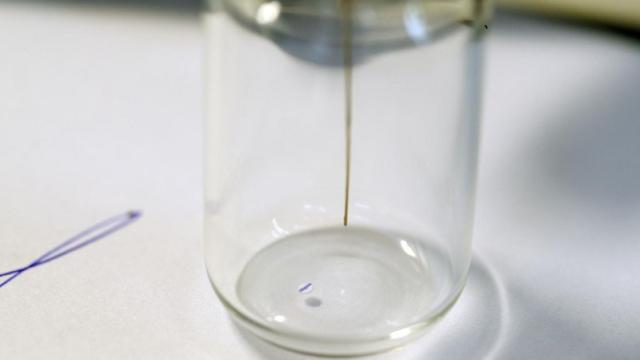Bad news for all any greedy aspiring murderers out there: a new technique allows companies to more easily date documents — lime wills — by examining a chemical component of the ink.
Until now, if you wanted to suffocate your wealthy uncle with a pillow after typing up and faking his signature on a will, you had some wiggle room. Police could date a document as under 90 days old, or over two years old, but specific dates were hard to pin down. There were too many variations. A pen stroke could vary in pressure, in the ink and paper interaction, and a number of other ways that made the exact date of the note difficult to date.
A new technique involves taking a look at 2-phenoxyethanol, a solvent found in most inks. As the ink ages, 2-phenoxyethanol evaporates. The less 2-phenoxyethanol, the older the ink. When checked against different documents, it looks like this technique can pin down the age of a document, within limits. The dating process only works when the document is less than five years old. What’s more, there’s a 20% margin of error. If testing on a document returns an age of, say, 100 days, the document could have been made anywhere between 80 and 120 days ago. So it’s still possible to get away with murder and inherit great wealth. Just be sure to take great care with your timeline.
[Source: Datink, Dating inks]
